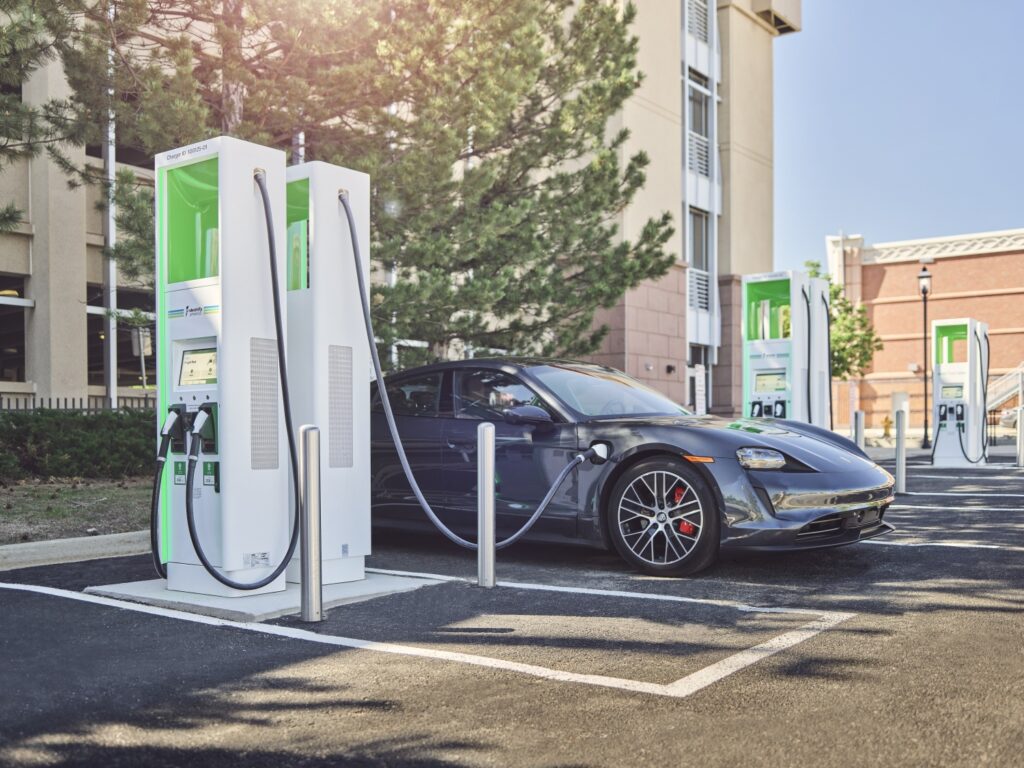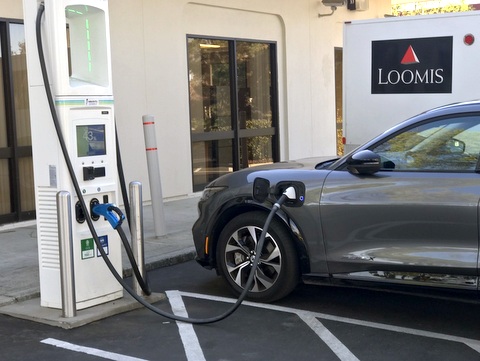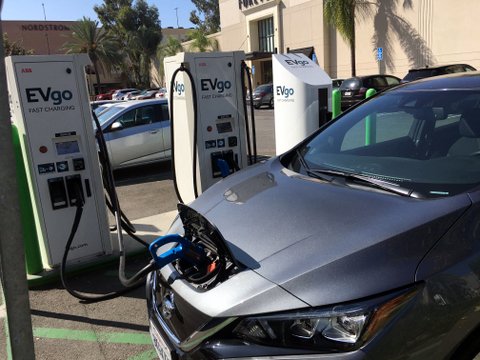Critical Charging Infrastructure Has to be Supported
The electric vehicle (EV) revolution heralds a promising shift toward environmental sustainability, potentially curbing CO2 emissions by over 90 percent to the benefit of local communities. However, the surging adoption of EVs has revealed a critical snag: the functionality of charging infrastructure.
Reports of outages and malfunctions underscore the pressing need for adept EV charging infrastructure maintenance technicians. This demand for specialized skills exacerbates the existing shortage of electricians and technicians in general.

As federal funding drives an upsurge in charging station installations, the shortage of talent to keep the infrastructure up and running intensifies, manifesting in widespread “charging anxiety” among EV drivers. While inherent to burgeoning industries, these disruptions spotlight a need for innovative solutions and collaborative efforts.
Challenges in EV Charging Infrastructure
The critical issue facing the global electric vehicle charging infrastructure lies not only in the number of nearly three million stations, but in their reliability, as EV drivers report problems like equipment or simply network failures causing inoperable stations. Exacerbating this are shortages of adept technicians qualified to maintain these intricate systems, contributing to prolonged downtimes and unstable functionality that shakes confidence.
The complexity of EV charging systems requires specialized expertise in areas like electrical systems, networking protocols and maintenance protocols, but an accelerating EV market is intensifying demand faster than this limited talent pool can grow. The industry is struggling to recruit and retain qualified technicians, straining an already overburdened workforce now tasked with supporting surging EV adoption.
The consequences manifest in charging station operability challenges that deflate EV driver confidence. Beyond simply accessing charging stations, drivers face uncertainty about whether stations will work, fueling “charging anxiety” based on unreliability, which further hampers adoption rates.

Ultimately, these reliability issues reflect the growing pains confronting an industry experiencing rapid expansion. Cultivating the technical expertise to service sophisticated EV charging infrastructure and ensure seamless functionality proves critical for nurturing confidence via consistent charging experiences.
Addressing the maintenance workforce shortage underpinning many operability challenges will allow charging networks to mature. Providing the workforce to match EV demand will enable the infrastructure scalability imperative for supporting continued ecosystem growth.
Strategies to Ensure a Skilled Workforce for EV Charging Infrastructure
Addressing the shortage of skilled workers in EV infrastructure maintenance demands strategic initiatives to fortify the workforce. Several key strategies can mitigate this scarcity and cultivate a proficient pool of professionals tailored to the specific needs of the EV charging ecosystem.
- Emphasis on industry standards and regulations: Implementing standardized certification programs, created by and recognized across the industry, guarantees a baseline proficiency level and instills confidence among employers and consumers. Moreover, regulatory bodies must continually update these standards to align with evolving EV technology, maintaining the relevance and efficacy of certifications.
- Continuous learning and professional development: Ongoing training programs, workshops and access to updated resources enable technicians to enhance their expertise and adapt to emerging trends. Furthermore, incentivizing and supporting professional development initiatives encourage technicians to stay abreast of the latest innovations, ensuring a competent workforce capable of addressing evolving challenges.
- Investment in technological tools and innovation: Integrating AI-driven assessments helps identify areas for upskilling, while VR-based training modules offer immersive, hands-on experiences in diagnosing and resolving complex issues. Additionally, gamification techniques can make training engaging and compelling, fostering skill development in a dynamic learning environment.
- Data-driven insights and real-time feedback: Tracking the performance and progression of technicians through data-driven assessments allows for targeted interventions and personalized learning pathways. Utilizing feedback mechanisms from industry experts ensures that training programs remain responsive to the evolving needs of the EV infrastructure maintenance sector.
By implementing these comprehensive strategies, stakeholders can collaboratively cultivate a skilled and adaptable workforce capable of meeting the evolving demands of the EV era, fortifying the foundation for a sustainable and reliable charging infrastructure.
Capturing the Promise of the EV Future
The EV revolution holds tremendous promise for sustainable transportation, but its success hinges on establishing a reliable charging infrastructure supported by a skilled workforce. As the industry confronts surging EV adoption rates that strain existing maintenance capacities, prioritizing workforce development in EV systems maintenance proves critical. Strategic collaboration between stakeholders—including charging networks, educational institutions, regulatory agencies and technician groups—can implement certified training programs, apprenticeships and upskilling initiatives to cultivate this proficiency.

Standardizing certification protocols across regions builds confidence in baseline competencies, while updated regulatory frameworks ensure relevance to evolving technologies. Investing to match the rising demand for qualified EV technicians will stabilize the existing overburdened workforce.
Addressing the maintenance skills gap now allows charging networks to mature reliably as EVs enter the mainstream. The culmination of these strategies will cement the workforce foundation necessary for this industry’s disruptive potential to manifest in sustainable, widespread impact—securing the promise of electric vehicles for economies, communities and the environment.
